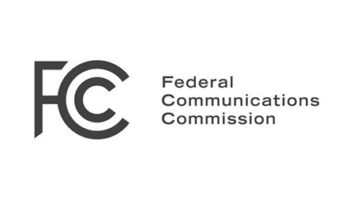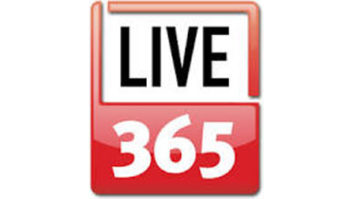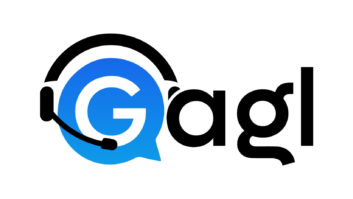
Ched Keiler has his eye on translators. As vice president of audio and radio for the National Translator Association, Ched Keiler is keeping tabs on issues like the repack of the television band in the 600 MHz band (he is concerned), the recent FM translator filling windows (he is pleased with the results) and is keeping close tabs on issues like noise in the AM band, Class A licensed stations and skywave coverage.
Radio World spoke with Keiler about the future of the radio industry, and what he sees are the biggest priorities for 2018.
Radio World: What is your full name and job title?
Ched Keiler: Charles (Ched) Keiler. I’m the vice president of audio and radio for the National Translator Association and a senior principal engineer for E Three Services, an engineering firm that services the broadcast and media needs of our industry.
Radio World: Can you share with us the NTA’s current key priorities and what do you see as the most pressing challenges facing broadcasters in 2018?
Keiler: The National Translator Association, NTA, is concerned with both television and radio translators that are used throughout the United States to service listeners and viewers. Currently, we are concerned about the repack of the television band in the 600 MHz band and the costs associated with keeping translators that service viewers and listeners. Congress missed appropriating funds for translators during the repack. We are actively working to get funding to keep translators on the air.
Radio World: Would you say that the opening of the last four cross-service FM translator windows has been good for the industry?
Keiler: In general, the filing windows for translators was positive for both the translator and the general broadcast industry. Translators are a very useful tool for broadcasters to reach viewers and listeners in difficult-to-reach reception areas that their normal broadcast signal does not adequately cover.
The last series of translator filing windows covered AM stations enabling them to broadcast and duplicate their coverage on the FM band. This is very beneficial to struggling AM stations that might not have had night coverage or had interference issues. This was a part of what was called the AM revitalization effort.
It’s important to realize though that translators do not solve the problems in the AM band of which many were emphasized in the FCC inquiry but still have yet to be addressed. Of those issues that still need to be addressed, the most significant would be noise in the AM band, Class A licensed stations and skywave coverage.
Radio World: The current FCC has made it clear that one of its priorities was to clear away regulatory underbrush. What is your assessment of the changes that Chairman Ajit Pai and the FCC have made so far in terms of its regulatory policy?
Keiler: The NTA as always been an advocated for the FCC to open up continuous filing windows with respect to translators and other broadcast services. We think that it’s unreasonable to wait 20 years or more to be able to file for a major modification to a translator or other broadcast facility. If the filing windows were opened more predictably, then broadcasters would be able to take advantage of more business opportunities on a timely basis.
Radio World: What work has the NTA been doing with the NRSC Radio Broadcast Working group?
Keiler: I happen to be a member of both NTA and National Radio Standards Committee. The NRSC has been very active with the creation of RDS2, which is the next generation of radio data services for FM radios. I have made suggestions on how RDS should work with respects to translators in particular. The NRSC is also working on other issues such as AM revitalization.
Radio World: What additional steps do you think the FCC needs to take when it comes to promoting/protecting translators/LPFM stations?
Keiler: NTA works with a number of other organizations. We look for a unified support structure with our LPFM colleagues.

Radio World: What is the NTA’s stance on how well the FCC is safeguarding against interference issues? What is the NTA’s assessment of the FCC’s current Enforcement Bureau staffing levels?
Keiler: There are number of sources of interference with respects to translators. First, are unlicensed operators, more commonly known as pirates, who operate without FCC authority. This is a real problem in metro areas such as New York, Los Angeles and Miami.
Another issue is claims of interference by full-power stations from translators. Currently, there are no technical rules that support this kind of interference. The standard that the FCC set was very low, and it was left to the translator owner to address. Thus many translators ended up with significant costs and/or left the air.
NTA recently filed comments and suggestions on how to rectify this issue for both translators and full power stations. The rulemaking was RM 11787. NTA suggested establishing technical standards for such interference and suggested a number of remedies. We are moving forward with other legislation and supporting translators.
With respect to enforcement, NTA supports having enforcement staff distributed throughout the country. Recently the FCC decided to cut one third of the enforcement staff of approximately 67 people nationwide at the time. Only having 67 people throughout the country to defend the rules and regulations of the FCC seems like a very low number to me and others. If the FCC is not willing to support enforcement of its rules and regulations, then what good are the rules and regulations?
Radio World: Where do you learn about new technology each year (what trade shows or information sources)?
Keiler: Every year the NTA holds a national convention. This year we will be in Salt Lake City from May 4 through May 6. I would encourage everyone that has any interest in either television or radio translators to attend. To learn more visit www.NationalTranslatorAssociation.org .












